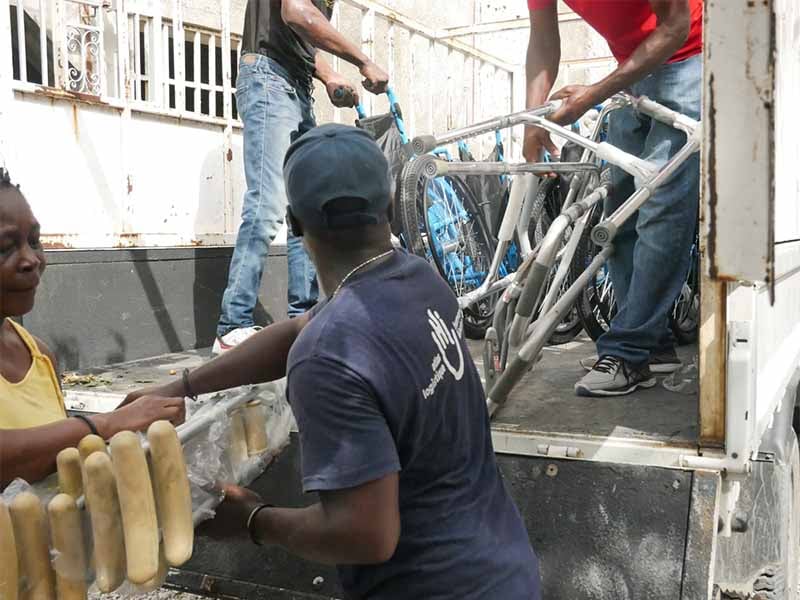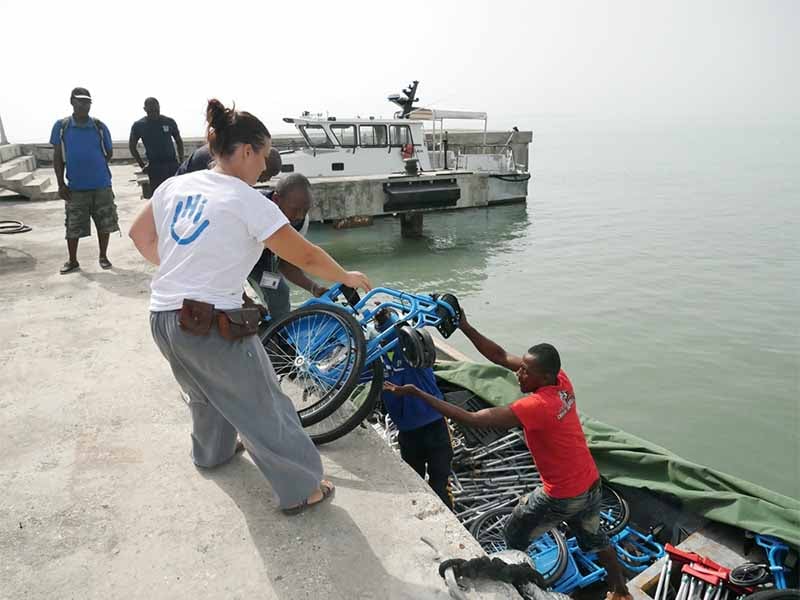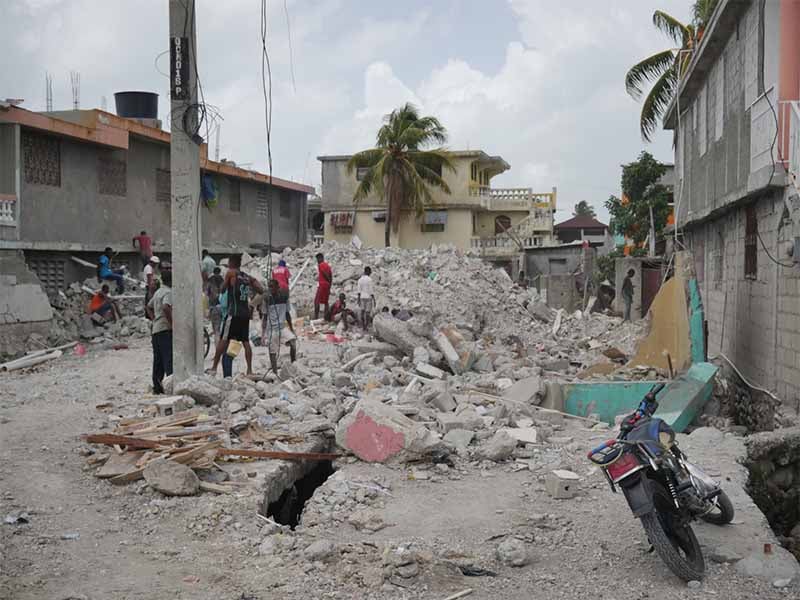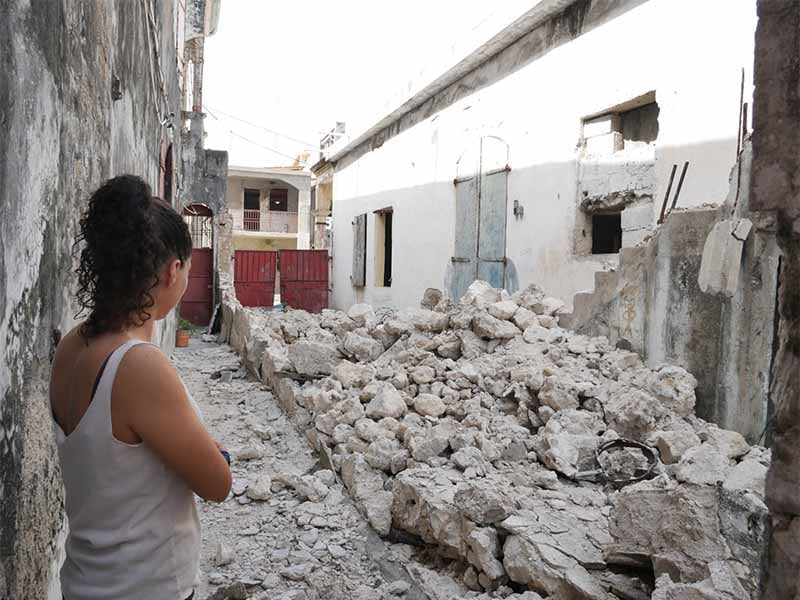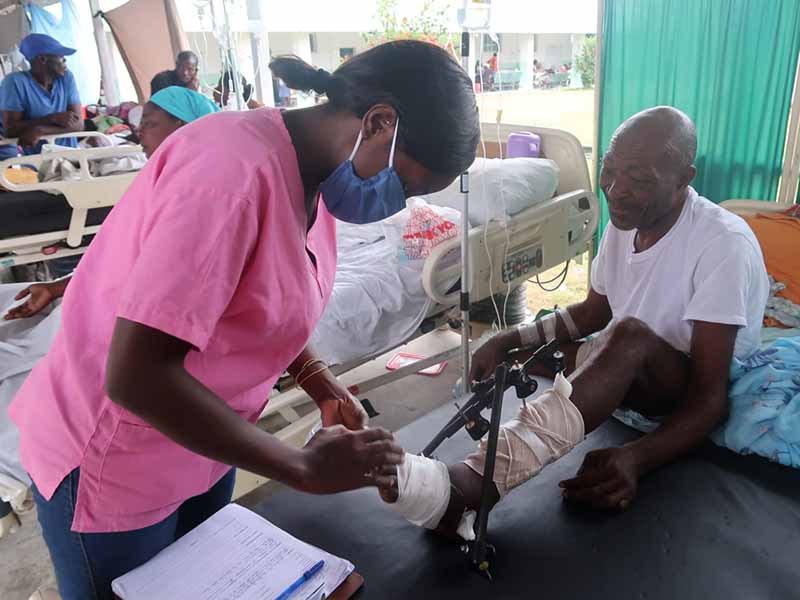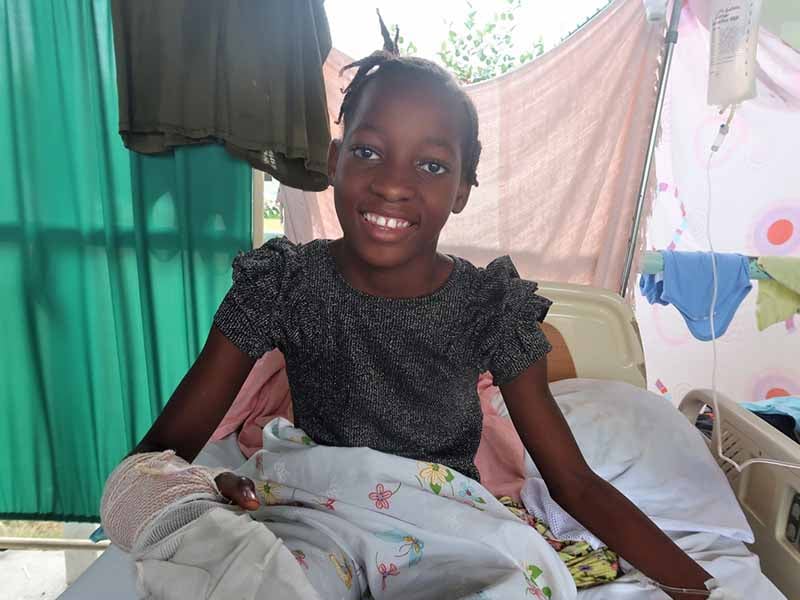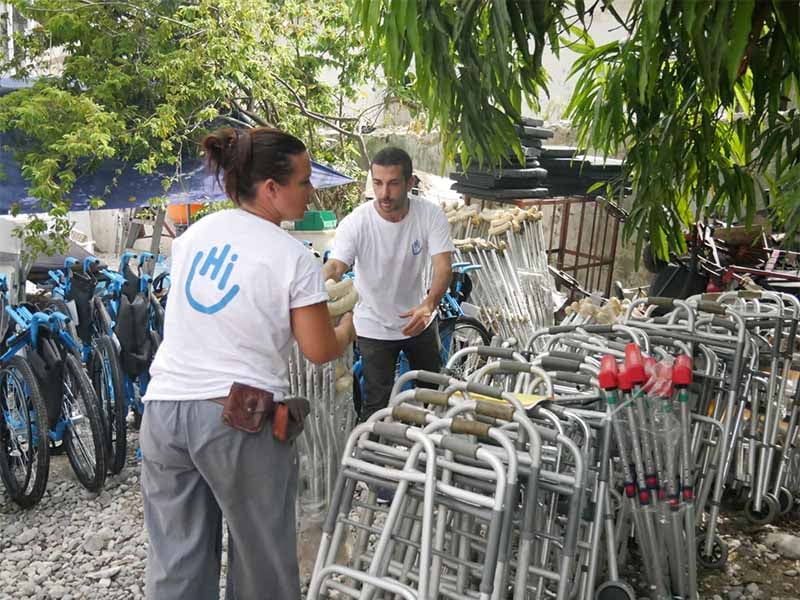YEMEN CRISIS APPEAL
Support injured and disabled people affected by the conflict in Yemen
Seven years of relentless bombing has left children and adults in Yemen at crisis point.
20.7 million people are in need of humanitarian assistance - that is two thirds of the population.
The level of destruction caused by bombing and shelling in populated areas is staggering, as is the level of contamination by explosive devices.
As well as causing death and injury, the systematic destruction of civilian infrastructure has contributed to hunger and disease, and dramatically reduced access to essential services such as healthcare, clean water and electricity.
Disabled people are afraid to go outside and live in constant fear of being injured, as they are unable to escape from explosions or armed clashes.
The situation is critical. And yet, this is a crisis that no one is talking about.
Hala, 4, lost her leg in an airstrike while she was playing with her cousin at home. HI teams provided her with a prosthetic leg and psychological support. Yemen, Sept 2019. © ISNA Agency / HI
Since 2015, Humanity & Inclusion teams have been taking action to respond to the urgent needs.
Our priority is to help the most vulnerable people affected by the conflict, including injured and disabled people, older people and the most vulnerable families.
Our impact to date
- Emergency rehabilitation services
We have provided rehabilitation sessions and support to over 42,500 people in hospitals and health centres. This includes treatment and support for 3,500 casualties of explosive weapons including landmines, bombing and shelling, and improvised explosive devices. We have also trained 820 medical staff in rehabilitation care.
- Prosthetics and mobility aids
Our teams have fitted 660 people with prosthetic limbs and orthotic supports. And we have provided people with 43,200 mobility aids, including crutches and wheelchairs.
- Mental health and psychological support. We have provided psychological and social support services to 29,800 injured and traumatised people.
- Supporting vulnerable families
We have distributed 2,900 hygiene kits and provided financial support to nearly 700 of the most vulnerable households.
- Educating civilians about the risks from explosive ordnance As well as bombing and shelling attacks, families face the hidden danger of explosive ordnance left behind from warfare. HI has 8 risk education teams conducting awareness sessions in hospitals, schools, and public buildings. We also plan door-to-door sessions in affected areas, and in camps for internally-displaced people.
The world may have turned its back on Yemen, but we won’t.
Please, can we count on your support today to help injured and disabled people in Yemen?
Children being fited with prosthetic legs by HI's team at Sana'a Rehabilitation Centre, Yemen. © ISNA Agency/HI
 THE HORRIFYING IMPACT OF EXPLOSIVE WEAPONS
THE HORRIFYING IMPACT OF EXPLOSIVE WEAPONS
Over the past seven years, every form of explosive weapon has been used in Yemen, including aerial bombs and missiles, artillery, mortars, improvised explosive devices (IEDs), and many more.
At least 24,000 airstrikes occurred since the beginning of the conflict March 2015. More than 9,000 civilians have been victims of airstrikes and shelling.
When explosive weapons are used in populated areas, 90% of the casualties are civilians.
Unacceptably large numbers of mine and bombing casualties continue to arrive at HI-supported facilities across the country. Since December 2015, HI teams have cared for 3,500 casualties of explosive weapons, including landmines, shelling, improvised explosive devices and explosive remnants of war.
A shocking 150,000 Yemenis have died as a direct result of the armed conflict, but estimates show that the cumulative impact of the war, with the continued deterioration of infrastructure and services, is responsible for a further 380,000 deaths. For example, due to the lack of health services and clean water supplies which have been largely destroyed by bombing and shelling.
“Consequences of the use of explosive weapons in populated areas are tragically predictable. Most of the people killed or injured are civilians. Widespread bombing causes complex injuries and psychological trauma. Populations are displaced and vital infrastructure like schools, hospitals, bridges, electricity supply, and clean water supply are destroyed. Contamination by explosive remnants is left behind, and can threaten the population for decades. There is only one solution: To stop the use of explosive weapons in populated areas.”
George Graham, Chief Executive of Humanity & Inclusion UK.
18.4 million
people in need of humanitarian assistance
including 9.7 million children
8.7 million
people facing emergency level of food insecurity
14.5 million
people needing emergency health services in 2021
634,800
people displaced by conflict in 2021
"PLEASE DON'T FORGET AFGHANISTAN IN THIS DIFFICULT TIME"
Mohammad Rasool, Base coordinator for HI in Afghanistan.
Mohammad Rasool manages HI's programme in Kandahar and Nimroz provinces where our teams are providing rehabilitation and psychosocial support. In this interview, Mohammad describes the situation on the ground at the moment.
Your gift today could make a real difference to the most vulnerable people who are in desperate need of support and care.
Other ways to donate:
- By telephone Call our Supporter Care team on 0330 555 0156 to donate by credit or debit card.
- By post Send a cheque payable to "Humanity & Inclusion UK" to: Yemen Appeal, Humanity & Inclusion UK, Romero House, 55 Westminster Bridge Road, London, SE1 7JB.
Latest photos from our teams in Afghanistan
All photos © HI
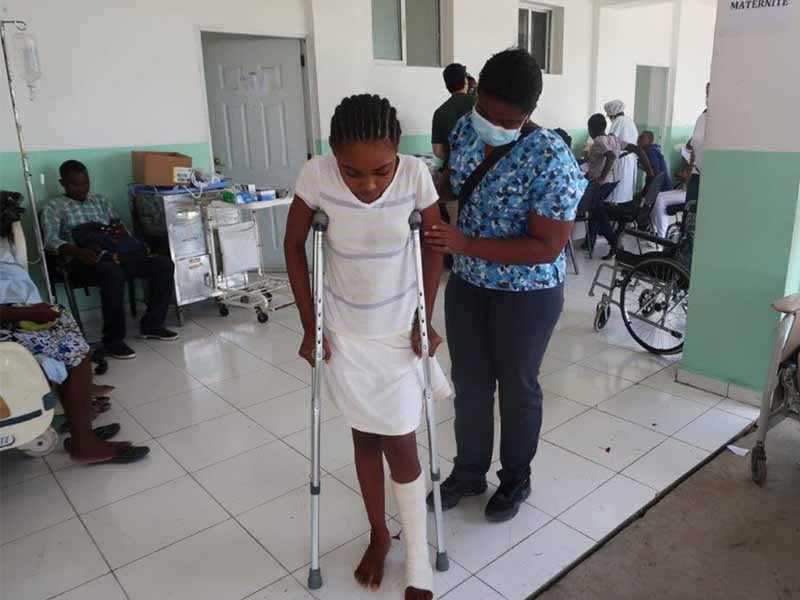
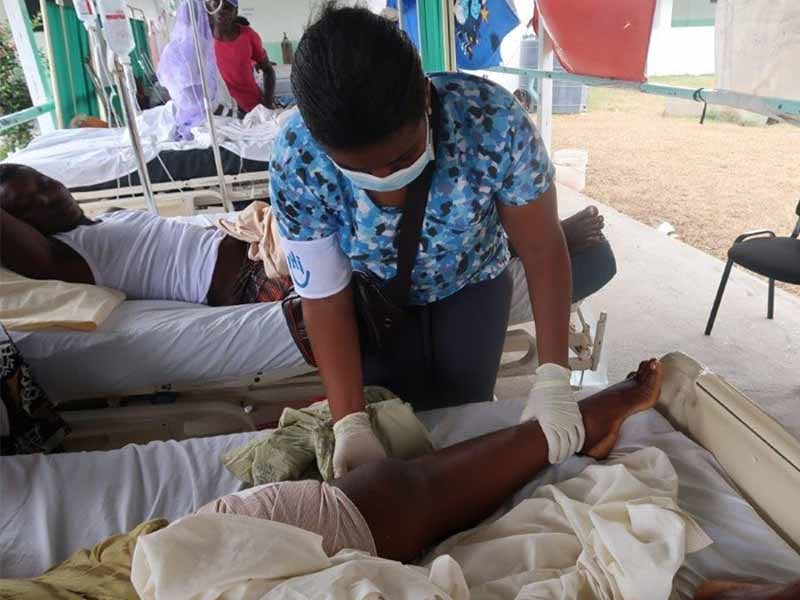
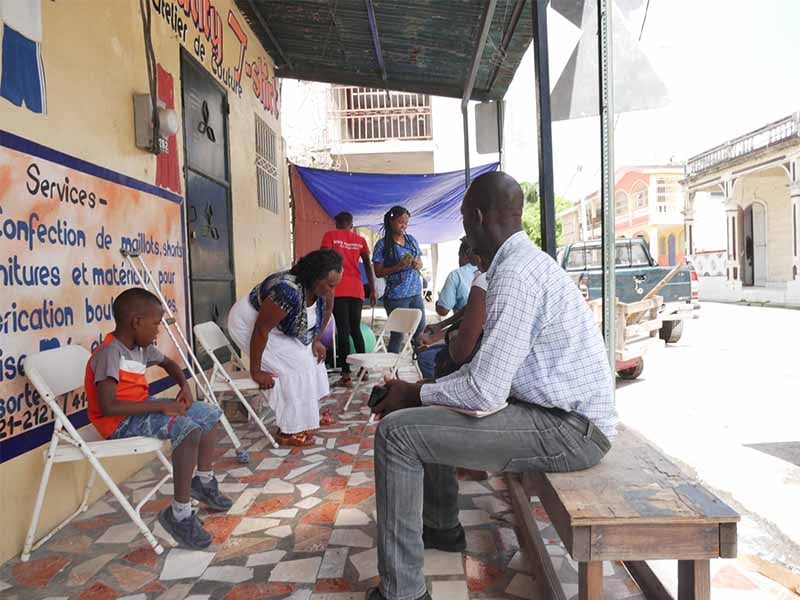
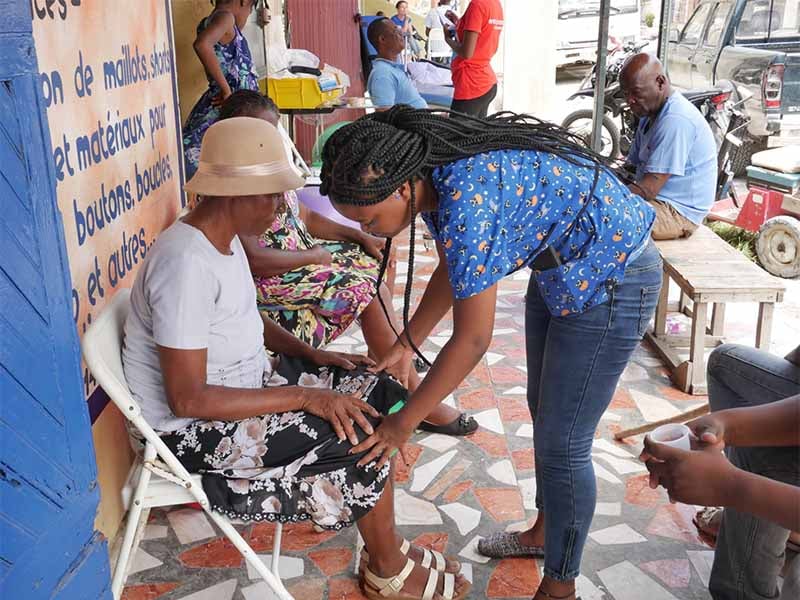
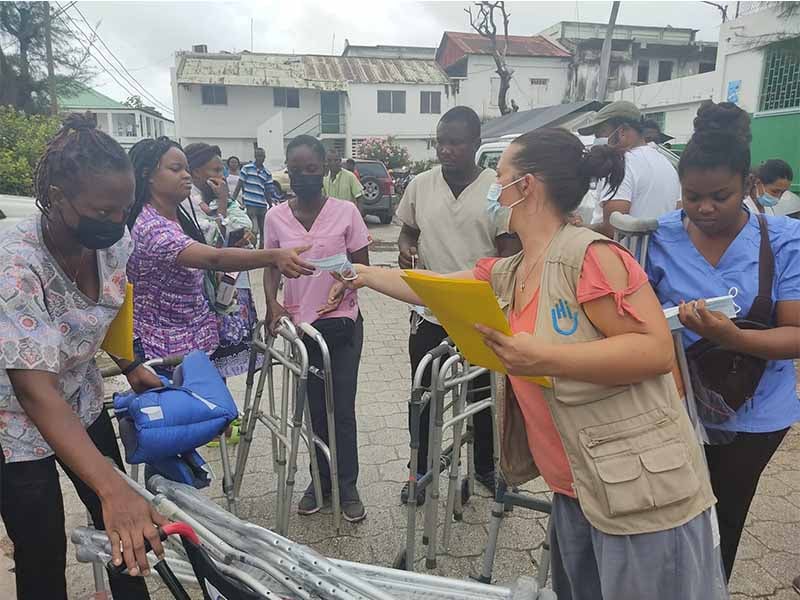
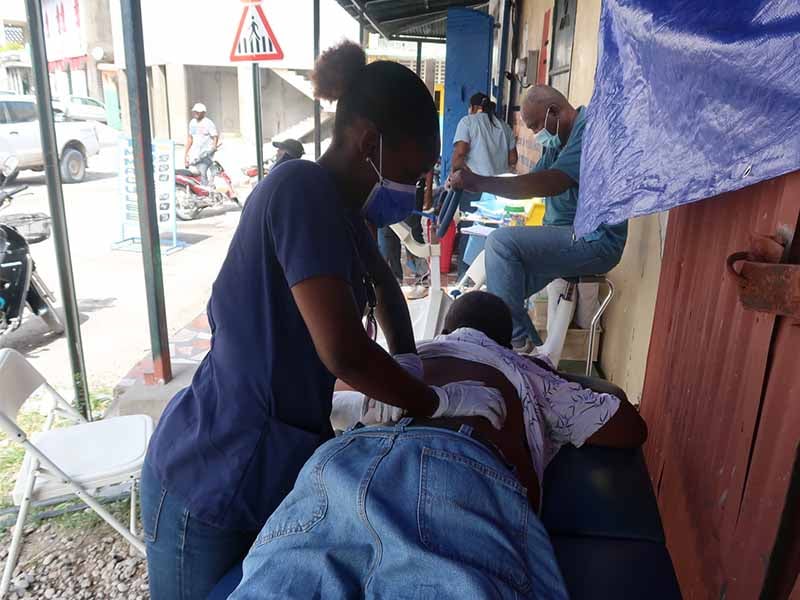
 Latest news from our teams
Latest news from our teams
Read more

Yemen: “People with disabilities are afraid to go outside.”
Life of people with disabilities in Yemen is desperate. Difficulties fleeing violence, accessing aid... Advocacy Advisor for Humanity & Inclusion,Yasmine Daelman explains the situation.

7 years after the start of the conflict in Yemen, the humanitarian situation is worse than ever
The level of destruction caused by bombing and shelling in populated areas is huge in Yemen, as is the level of contamination by explosive devices.

Yemen: “I am shocked by the diversity of the contamination.”
After 7 years of war, Yemen is heavily contaminated by explosive remnants of war including improvised explosive devices. Humanity & Inclusion will soon launch a campaign to raise awareness within population on the danger of these weapons. Interview with Douglas Kalima, Humanity & Inclusion Risk Education Expert in Yemen.
ABOUT US
Humanity & Inclusion UK
Romero House,
55 Westminster Bridge Road,
London SE1 7JB
UK registered charity no. 1082565




Terms & conditions | Privacy | Cookies
© Humanity & Inclusion UK
